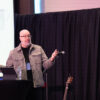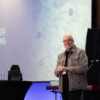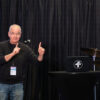About Us
We exist to:
Worship God
We are a corporate body designed to worship God
Disciple believers
We are a channel for instilling God’s purpose in His people
Show compassion
We are an example of God’s love for all
We are a cooperative fellowship of churches reaching unchurched people and making disciples of Jesus Christ.
Our Vision
The Minnesota District Council employs proven tactics to help fulfill the Great Commission:
- Developing evangelism strategies that will create “points of entry” for the unchurched.
- Providing continuing education and a network of prayer and fellowship for pastors and their families
- Training lay leaders to enhance their ministry effectiveness.
- Developing church planting and revitalization strategies.
- Providing assistance for legal, financial, and strategic planning matters.
- Assisting in the recruitment of qualified clergy to meet the leadership needs of our churches.
- Providing Christ-centered events to evangelize and spiritually renew individuals, families and churches.
- Promoting awareness, prayer, and financial support for district, national and foreign ministries of the Assemblies of God.
Our Beliefs
Click here to Read more about these 16 Fundamental Truths
- The Scriptures Inspired
- The One True God
- The Deity of the Lord Jesus Christ
- The Fall of Man
- The Salvation of Man
- The Ordinances of the Church
- The Baptism in the Holy Spirit
- The Initial Physical Evidence of the Baptism in the Holy Spirit
- Sanctification
- The Church and Its Mission
- The Ministry
- Divine Healing
- The Blessed Hope
- The Millennial Reign of Christ
- The Final Judgment
- The New Heavens and the New Earth
Our History
The Modern Pentecostal Movement
The beginning of the modern Pentecostal revival is generally traced to a prayer meeting at Bethel Bible College in Topeka, Kansas, on January 1, 1901. While many others had spoken in tongues previously during almost every period of spiritual revival, most researchers agree it was here that recipients of the experience, through study of the Scriptures, came to believe speaking in tongues is the biblical evidence for the baptism in the Holy Spirit.
The revival spread rapidly to Missouri and Texas, then to California and elsewhere. A 3-year revival meeting at Azusa Street Mission in Los Angeles attracted believers from across the nation and overseas and served as a springboard to send the Pentecostal message around the world.
A Growing Need
By 1914, many ministers and laymen alike had begun to realize the rapid spread of the revival, and the many evangelistic outreaches it spawned had created a number of practical problems. The need arose for formal recognition of ministers as well as approval and support of missionaries, with full accounting of funds. In addition, there was a growing demand for doctrinal unity, gospel literature, and a permanent Bible training school.
These concerned leaders realized that to protect and preserve the results of the revival the thousands of newly Spirit-baptized believers should be united in a cooperative fellowship.
In 1914 about 300 preachers and laymen gathered from 20 states and several foreign countries for a “general council” in Hot Springs, Arkansas, to discuss and take action on the growing need. The five reasons they listed for calling the meeting were: doctrinal unity, conservation of the work, foreign missions interests, chartering churches under a common name for legal purposes, and the need for a Bible training school.
A New Fellowship
A cooperative fellowship emerged from the meeting and was incorporated under the name “The General Council of the Assemblies of God.” Most of the delegates had little desire to form a new denomination or sect, and they structured their organization to unite the assemblies in ministry and legal identity while leaving each congregation self-governing and self-supporting. This structure continues to the present.
In 1916 the General Council added a Statement of Fundamental Truths to its constitution. A simple statement, it remains virtually unchanged and continues to provide a sound basis for the Fellowship, giving a firm position on vital doctrines.
From the beginning, Assemblies of God ministries have focused on evangelism and missions and have resulted in a continuing growth at home and abroad.
The Minnesota District
In 1922, the Minnesota District Council of the Assembly of God was added to the fellowship, celebrating growth and engagement across the state. Now, the Minnesota District of the Assemblies of God celebrates over 100 years of vibrant ministry, both locally and globally.



